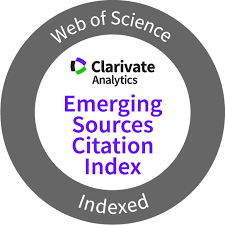Estrategias de comunicación: Airbnb versus hoteles / Communication strategies: Airbnb versus hotels
DOI:
https://doi.org/10.5783/revrrpp.v8i16.546Palabras clave:
estrategias de comunicación, información selectiva, Airbnb, hoteles, lobbiesResumen
La expansión del mercado de viviendas de uso turístico ha abierto debates en distintos ámbitos. La presión por regular este fenómeno contrasta con la ausencia de evidencia empírica sólida sobre sus efectos reales. Ante esta situación los principales actores implicados han implementado sus propias estrategias de comunicación para defender sus intereses. Este artículo toma como referencia el caso español para analizar la información proveniente de Airbnb, como principal plataforma que facilita la comercialización de alojamientos turísticos entre particulares, y de las asociaciones hoteleras, como representantes de las empresas establecidas en el mercado de alojamientos convencional. Los resultados demuestran que estos grupos han articulado estrategias de comunicación basadas en la información selectiva, es decir, procurando que los órganos decisores tomen conciencia de sus propios intereses y, al mismo tiempo, ocultando o minimizando los que afectan a otros agentes. Los principales puntos de desacuerdo giran en torno al carácter colaborativo o lucrativo de la actividad, a sus impactos económicos en término de renta y empleo, y a sus efectos sobre la población residente y, en particular, sobre el precio de la vivienda y su alquiler. Para reforzar sus respectivas posiciones se han presentado informes que no superarían los mínimos estándares de calidad que son usuales en la comunidad académica. La eficacia de sus respectivas estrategias no se valora en función de la búsqueda de evidencias objetivas sino de acuerdo con los objetivos perseguidos, es decir, la implementación de normativas que promuevan intereses concretos. En este sentido, a pesar de que, en principio, las administraciones públicas han aprobado normativas que restringen la actividad de Airbnb en España, algunas han sido recurridas ante los tribunales, por lo que cualquier valoración sobre la eficacia de las estrategias de comunicación que están en marcha debe ser, en el mejor de los casos, provisional.
Palabras claves: estrategias de comunicación, información selectiva, Airbnb, hoteles, lobbies
Abstract
The expansion of the tourist housing market has opened debates in different areas. The pressure to regulate this phenomenon contrasts with the absence of solid empirical evidence about its real effects. In this situation, the main actors involved have implemented their own communication strategies to defend their interests. This article takes as reference the Spanish case, to analyze the information coming from Airbnb, as the main platform that facilitates the commercialization of tourist accommodations between individuals, and from hotel associations, as representatives of companies established in the conventional accommodation market. The results show that these groups have articulated communication strategies based on targeted information that is, trying to make decision-makers aware of their own interests and, at the same time, concealing or minimizing those that affect other agents. The main points of disagreement revolve around the collaborative or lucrative nature of the activity, its economic impacts in terms of income and employment, and its effects on the resident population and, in particular, on the price of housing and its rent. To reinforce their respective positions, reports have been presented that do not pass the minimum quality standards that are common in the academic community. The effectiveness of their respective strategies is not assessed based on the search for objective evidence but in accordance with the objectives pursued, that is, the implementation of regulations that promote specific interests. In this sense, despite the fact that, in principle, public administrations have implemented regulations that restrict the activity of Airbnb in Spain, some have been appealed before the courts, so any assessment of the effectiveness of the communication strategies that are under way should be, at best, provisional.
Keywords: communication strategies, targeted information, Airbnb, hotels, lobbies
Descargas
Citas
AHUJA, R. & LYONS, R. (2017). The Silent Treatment: LGBT Discrimination in the Sharing Economy, Trinity Economics Papers tep1917, Trinity College Dublin, Department of Economics.
AIRBNB (n.d.a). Airbnb Policy Tool Chest. Extraído de https://2sqy5r1jf93u30kwzc1smfqt-wpengine.netdna-ssl.com/wp-content/uploads/2016/12/National_PublicPolicyTool-ChestReport-v3.pdf.
AIRBNB (n.d.b). Un estudio sobre Airbnb y los emprendedores en España. Extraído de https://2sqy5r1jf93u30kwzc1smfqt-wpengine.netdna-ssl.com/wp-content/uploads/2014/02/BCNEntrepreneurES-AM-05.pdf.
ALONSO, A. (2017). La mal llamada economía colaborativa es economía sumergida, Tourinews. Extraído de https://www.tourinews.es/noticias/entrevista-joan-molas-economia-colaborativa_4439528_102.html.
ARANA, E. (2018). La intervención local en las viviendas de uso turístico a través de la zonificación urbanística: requisitos y consecuencias, Reala, 10, 6–21
AYUNTAMIENTO DE BARCELONA (2018). Plan Especial Urbanístico de Alojamiento Turístico (PEUAT). Extraído de http://ajuntament.barcelona.cat/pla-allotjaments-turistics/es/.
AYUNTAMIENTO DE BILBAO (2018). Aprobar definitivamente la modificación pormenorizada del Plan General de Ordenación Urbana de Bilbao en lo relativo a la regulación del uso de alojamiento turístico. Boletín Oficial de Bizkaia, núm. 31, 13 de febrero de 2018.
AYUNTAMIENTO DE MADRID (2018). Aprobado el Plan Especial para la regulación de los alojamientos turísticos. Extraído de https://diario.madrid.es/blog/notas-de-prensa/aprobado-el-plan-especial-para-la-regulacion-de-los-alojamientos-turisticos/.
AYUNTAMIENTO DE PALMA (2018). Urbanismo aprueba de forma definitiva la zonificación del alquiler turístico. Extraído de https://www.palma.cat/portal/PALMA/contenedor1.jsp?seccion=s_fnot_d4_v1.jsp&contenido=113121&tipo=8&nivel=1400&layout=contenedor1.jsp&language=es.
AYUNTAMIENTO DE SAN SEBASTIÁN (2018). Ordenanza municipal reguladora del uso de vivienda turística y de alquiler de habitaciones en vivienda habitual para uso turístico. Extraído de http://www.donostia.eus/secretaria/normunicipal.nsf/vListadoId/2959C36F10AAD2B8C125825C0040055F/$file/Etxebizitzaturistikoak.pdf.
AYUNTAMIENTO DE VALENCIA (2018). Plan Especial de Protección de Ciutat Vella. Extraído de http://pepciutatvella.paisatge.org/.
BARRON, K., KUNG, E., & PROSERPIO, D. (2018). The Sharing Economy and Housing Affordability: Evidence from Airbnb. Extraído de https://ssrn.com/ abstract=3006832.
BELK, R. (2014). Sharing Versus Pseudo-Sharing in Web 2.0, Anthropologist, 18(1), 7–23.
BENÍTEZ-AURIOLES, B. (2018). The role of distance in the peer-to-peer market for tourist accommodation, Tourism Economics, 24(3), 237–250.
BETORET, T. (2018). Apartamentos Turísticos VS viviendas con fines turísticos en Andalucía. Extraído de http://www.hosteleriadigital.es/2018/09/25/apartamentos-turisticos-vs-viviendas-con-fines-turisticos-en-andalucia/.
CAMPOS, N.F. y GIOVANNONI, F. (2017). Political institutions, lobbying and corruption, Journal of Institutional Economics, 13(4), 917–939.
CEHAT (2018). La CEHAT denuncia el trato de favor fiscal a las viviendas turísticas. Extraído de http://www.cehat.com/adjuntos/fichero_8612_20180322.pdf.
CNMC (2018a): Estudio sobre la regulación de las viviendas de uso turístico en España. Extraído de https://www.cnmc.es/sites/default/files/2116718_2.pdf.
COLDWELL, W. (2017). First Venice and Barcelona: now anti-tourism marches spread across Europe. Extraído de https://static1.squarespace.com/static/53109b11e4b05040160f0a8f/t/59bfcc8b90badeccf7cc1564/1505741995422/First+Venice+and+Barcelona_+now+anti-tourism+marches+spread+across+Europe+_+Travel+_+The+Guardian.pdf.
COLES, P. A., EGESDAL, M., ELLEN, I. G., LI, X., & SUNDARARAJAN, A. (2017). Airbnb usage across New York City neighborhoods: Geographic patterns and regulatory implications, Cambridge Handbook of the Law of the Sharing Economy (forthcoming). Extraído de https://ssrn.com/abstract=3048397.
CUI, R., LI, J., & ZHANG, D.J. (2016). Discrimination with incomplete information in the sharing economy: Field evidence from Airbnb. Extraído de https://ssrn.com/abstract=2882982.
DEALE, C.S. & CRAWFORD, A. (2016). Providers’ perceptions of the online community marketplace for lodging accommodations, Tourism, and Hospitality Research, DOI: 10.1177/1467358416682067.
EDELMAN, B., LUCA, M., & SVIRSKY, D. (2017). Racial Discrimination in the Sharing Economy: Evidence from a Field Experiment, American Economic Journal: Applied Economics, 9(2), 1–22.
EINAV, L., FARRONATO, C., & LEVIN, J. (2016). Peer-to-Peer Markets, Annual Review of Economics, 8, 615–635.
EUROPEAN COMISSION (2018). Study on the Assessment of the Regulatory Aspects Affecting the Collaborative Economy in the Tourism Accommodation Sector in the 28 Member States. Extraído de https://publications.europa.eu/en/publication-detail/-/publication/c7a7b5bb-526d-11e8-be1d-01aa75ed71a1/language-en.
EUROPEAN COMMISSION (2018). Study on the Assessment of the Regulatory Aspects Affecting the Collaborative Economy in the Tourism Accommodation Sector in the 28 Member States. Task 3 Report Openness / business friendliness ranking of the regulatory environment surrounding the collaborative economy in the tourism accommodation sector across the 28 Member States. Spark Legal Network and Valdani Vicari & Associati. Extraído de https://publications.europa.eu/en/publication-detail/-/publication/304c5faf-526b-11e8-be1d-01aa75ed71a1/language-en.
EY (2015): Impactos sociales y económicos sobre los destinos españoles derivados del exponencial aumento del alquiler de viviendas turísticas de corta duración, impulsado por los nuevos modelos y canales de comercialización P2P, Exceltur. Extraído de https://www.exceltur.org/wp-content/uploads/2015/06/Alojamiento-tur%C3%ADstico-en-viviendas-de-alquiler-Impactos-y-retos-asociados.-Informe-completo.-Exceltur.pdf.
FANG, B., YE Q., & LAW, R. (2016). Effect of sharing economy on tourism industry employment, Annals of Tourism Research, 57, 234–278.
FREY, B. (1983). Democratic Economic Policy, St. Martin’s Press, New York.
FREYTAG, T & BAUDER, M. (2018). Bottom-up touristification and urban transformations in Paris, Tourism Geographies, 20(3), 443–460.
GUTTENTAG, D. (2015). Airbnb: disruptive innovation and the rise of an informal tourism accommodation sector. Current Issues in Tourism, 18(12), 1192–1217.
HABIBI, M.R., DAVIDSON, A., & LAROCHE, M. (2017). What managers should know about the sharing economy, Business Horizons, 60(1), 113–121.
HAJIBABA, H. & DOLNICAR, S. (2017a). Airbnb and its Competitors. In S. Dolnicar, Peer-to-Peer Accommodation Networks: Pushing the boundaries, Oxford, Goodfellow Publishers, 63–76.
HAJIBABA, H. & DOLNICAR, S. (2017b). Do Hosts Discriminate?. In S. Dolnicar, Peer-to-Peer Accommodation Networks: Pushing the boundaries, Oxford. Goodfellow Publishers, 215–224.
HARTMANS, A. (2017). Airbnb now has more listings worldwide than the top five hotel brands combined, Business Insider. Extraído de https://www.businessinsider.com/airbnb-total-worldwide-listings-2017-8?IR=T.
HEO, C.Y., BLAL, Y., & CHOI, M. (2019). What is happening in Paris? Airbnb, hotels, and the Parisian market: A case study, Tourism Management, 70, 78–88.
HORN, K. & MERANTE, M. (2017). Is home sharing driving up rents? Evidence from Airbnb in Boston, Journal of Housing Economics, 38, 14–24.
HOSTELSUR (2018b). Entrevista al Presidente de FEVITUR, Tolo Gomila. Extraído de https://www.fevitur.com/index.php?option=com_content&view=article&id=1765:entrevista-al-presidente-de-fevitur-tolo-gomila&catid=69:noticias&Itemid=261&lang=es.
HOSTELTUR (2018a). “Radiografía de los destinos principales de la economía colaborativa”. Extraído de https://www.fevitur.com/images/Radiografia_de_los_destinos_principales_de_la_economia_colaborativa.pdf.
INTERIAN, J. (2016). Up in the Air: Harmonizing the Sharing Economy Through Airbnb Regulations. Boston College International and Comparative Law Review, 39(1), 129–161.
JOHNSON, A-G. & NEUHOFER, B. (2017). Airbnb–an exploration of value co-creation experiences in Jamaica, International Journal of Contemporary Hospitality Management, 29(9), 2361–2376.
KARLSSON, L. & DOLNICAR, S. (2016). Someone’s been sleeping in my bed, Annals of Tourism Research, 58, 159–162.
LLOBET, G. (2018). La vivienda turística y el precio del alquiler ¿Qué dice la evidencia?. Extraído de http://nadaesgratis.es/gerard-llobet/la-vivienda-turistica-y-el-precio-del-alquiler-que-dice-la-evidencia.
MODY, M., SUESS, C., & DOGRU, T. (2018). How Does My Neighbor Feel About my Airbnb?, Boston Hospitality Review. Extraído de https://open.bu.edu/bitstream/handle/2144/28801/How-Does-My-Neighbor-Feel-About-My-Airbnb.pdf?sequence=3.
MÖHLMANN, M. (2015). Collaborative consumption: determinants of satisfaction and the likelihood of using a sharing economy option again, Journal of Consumer Behaviour, 14, 193–207.
NIEUWLAND, S. & VAN MELIK, R. (2018). Regulating Airbnb: how cities deal with perceived negative externalities of short-term rentals, Current Issues in Tourism, DOI: 10.1080/13683500.2018.1504899.
OSKAM, J. & BOSWIJK, A. (2016). Airbnb: the future of networked hospitality businesses, Journal of Tourism Futures, 2(1), 22–42.
RAVENELLE, A. (2016). Belong Anywhere? How Airbnb Is Dismantling Generations of Civil Rights in the Name of Progress. Extraído de https://ssrn.com/abstract=2838219.
SCHOR, J. (2014). Debating the Sharing Economy. Extraído de https://www.greattransition.org/publication/debating-the-sharing-economy
STIGLER, G.J. (1971). The Theory of Economic Regulation, The Bell Journal of Economics and Management Science, 2(1), 3–21.
TUSSYADIAH, I.P. & PESONEN, J. (2016). Impacts of Peer-to-Peer Accommodation Use on Travel Patterns, Journal of Travel Research, 55(8), 1022–1040.
ZERVAS, G., PROSERPIO, D., & BYERS, J. W. (2017). The rise of the sharing economy: Estimating the impact of Airbnb on the hotel industry, Journal of Marketing Research, 54(5), 687–705.
Descargas
Publicado
Cómo citar
Número
Sección
Licencia
Los autores que publican en esta revista están de acuerdo con los siguientes términos:- Los autores conservan los derechos de autor y garantizan a la revista el derecho de ser la primera publicación del trabajo al igual que licenciado bajo una Creative Commons Attribution License que permite a otros compartir el trabajo con un reconocimiento de la autoría del trabajo y la publicación inicial en esta revista.
- Los autores pueden establecer por separado acuerdos adicionales para la distribución no exclusiva de la versión de la obra publicada en la revista (por ejemplo, situarlo en un repositorio institucional o publicarlo en un libro), con un reconocimiento de su publicación inicial en esta revista.
- Se permite y se anima a los autores a difundir sus trabajos electrónicamente (por ejemplo, en repositorios institucionales o en su propio sitio web) antes y durante el proceso de envío, ya que puede dar lugar a intercambios productivos, así como a una citación más temprana y mayor de los trabajos publicados (Véase The Effect of Open Access) (en inglés).




